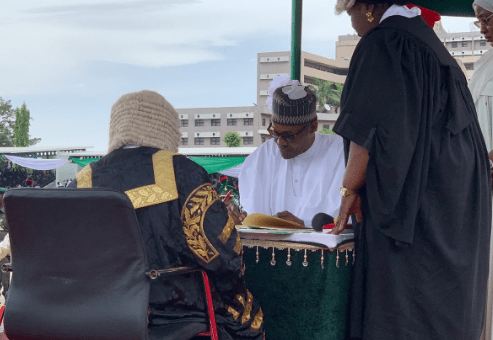Unknown to many, Nigeria was without a president and vice president between the hours of 12 midnight of Wednesday May 2019 and 10 am, Wednesday, May 2
Unknown to many, Nigeria was without a president and vice president between the hours of 12 midnight of Wednesday May 2019 and 10 am, Wednesday, May 2019, the inauguration day. Vice President Yemi Osinbajo made this known when he thanked the Senate President, Bukola Saraki for not taking advantage of the vacuum in power before the presidential inauguration.
Osinbajo stated this at a dinner organised in honour of President Muhammadu Buhari and himself at the State House Banquet Hall. Buhari and Osinbajo had earlier in the day sworn in for a second term in office by the acting Chief Justice of Nigeria, Justice Tanko Muhammad.
“Something interesting happened earlier today; I am a lawyer and a law teacher and I like to test and interrogate legal scenarios,” he said.
“At one minute past midnight today, the four-year term of the President and I ended by effluxion of time. So, from one minute past 12 of last night, May 29 to about 10:30 a.m. when we were sworn in for a second term there was no President or Vice President. Interestingly nothing went wrong, all was okay; when such a situation arises, it is the Senate President who acts as President. So, when I arrived at Eagle Square this morning, some may have noticed that the Senate President and I were enjoying a joke. He said to me jokingly ‘You better be careful, you know I’m the acting President now’; so, we thank the Senate President for not doing anything funny.’’
The vice president said that the beauty of democracy was the orderly and civilised process of transition and more importantly, the sanctity of and respect for the will and choice of the people.
